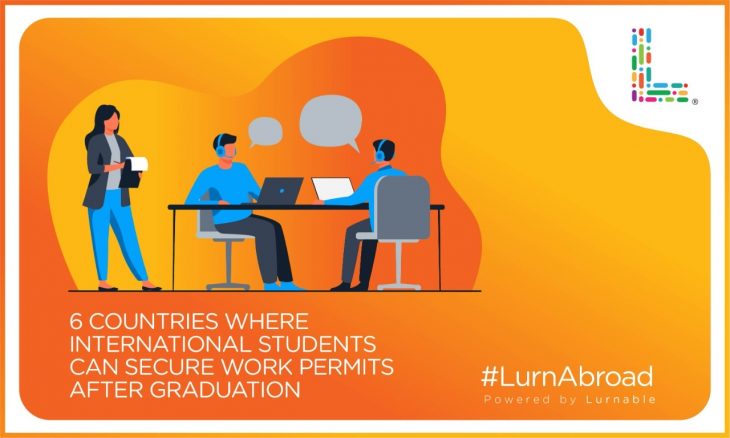The concept of study abroad is more popular than ever. Despite the challenging situation amid the pandemic, more and more students want to access international students. The growing number of applications in universities abroad is enough to validate the study abroad boom. While most international students want to broaden their horizons, a major proportion has long-term plans to work, live, and settle abroad eventually.
Not surprisingly, destinations that offer post-study work visas are preferred by international students. Choosing one of these countries gives you a head start as you get a chance to explore job opportunities after getting your degree from the university. Fortunately, several study abroad destinations have liberal immigration norms for students completing their education from a university there. You can even start working while you study. Let us list the leading ones and explain their work permit regulations.
USA
The US is among the preferred destinations for international students as it offers the broadest range of programmes in reputed universities. A large number of students choose the country to live the American dream and build a lucrative career and prosperous life after completing their studies here. Fortunately, the US has student-friendly work permit rules. Let us highlight them for you:
- F1 Visa students can pick OPT-Optional Practical Training that enables them to work in their field of academics.
- You can convert F1 Visa to H1B Visa.
- With H1B Visa, you can work here for three years and get an extension of up to 6 years.
CANADA
Canada is another popular study abroad destination renowned for its friendly immigration policies. It also brings world-class education and has a robust economy, where you can explore job opportunities galore after getting your degree. Graduates can stay back here, regardless of their field of education. If you graduate from a recognized Designated Learning Institutions (DLI), you can go ahead and apply for a Post Graduation Work Permit (PGWP). The eligibility norms include:
- Minimum 18 years of age
- Completed at least 8 months for a full-time course in Canada from a DLI
- Received a certificate/transcripts for completion of the course from respective DLIs
PGWP is valid for three years, and you can look for acquiring PR after the completion of this period.
UK
International students prioritise the UK for its top-notch education and alluring lifestyle. The stringent post-study work visa rules of the country were not favourable until last year. Graduates could stay back only for four months after getting their degree (one year for and Ph.D. students). At the same time, uncertainties over Brexit caused a decline in the popularity of the UK as an international education destination. The country’s administration took a cue and relaxed the post-study work visa rules to get the students back after the post-pandemic lull. The recent changes allow international students to work in the country for a period of two years after the completion of their degree.
GERMANY
Germany is revered for bringing world-class education within budget. It is one of the cheapest countries to study abroad and even has some free options in public university programmes. While you can study here without spending a fortune, there are also good chances of staying back and working in the country. International students can get a Residence permit for 18 months after their degree. They can find a job and work in their area of specialisation. After securing their jobs, students can apply for an employment visa. The country has three types of residence permits:
- Self-employed
- General employment
- Specialist professionals
AUSTRALIA
Down under, Australia has some of the leading universities across the world. The country also has a flourishing economy and excellent career opportunities, making it a popular destination for study abroad aspirants. You can get a two-year work permit after completing a master’s degree here, regardless of the field of your specialisation. Conversely, a Bachelor’s degree makes you eligible for a Graduate Work Visa with a validity period of 18 months. However, international students with a Diploma cannot apply for a work visa in the country.
NEW ZEALAND
Next on the list is New Zealand, another country that embraces international students with aplomb. But there are some rules and regulations that apply to post-study work visas. You need to attain Level 4 or higher of education qualification framework in the country. Students with Level 4-6 can get the visa subject to the following regulations:
- Completion of 60 weeks or more of study
- Completion of two different types of courses lasting 30 weeks or above
- Excludes English Speakers of Other Languages (ESOL)
You can even get an opportunity for a longer work stay in the country. Here are the conditions you will have to fulfil:
- Start another academic programme
- The programme should be 30 weeks or longer
- It can be undergraduate or postgraduate study level
- It must be a level higher than the last attended programme
As an international student, you can research and compare the post-study work visa options in these leading destinations to choose wisely. Apart from the university and programme of your choice, this is one factor you cannot miss out on if you have your eyes set on settling abroad.

If you are considering studying abroad why don’t you discuss your prospects and opportunities with experts at Lurnable’s dedicated study abroad counselling division LurnPathways?





